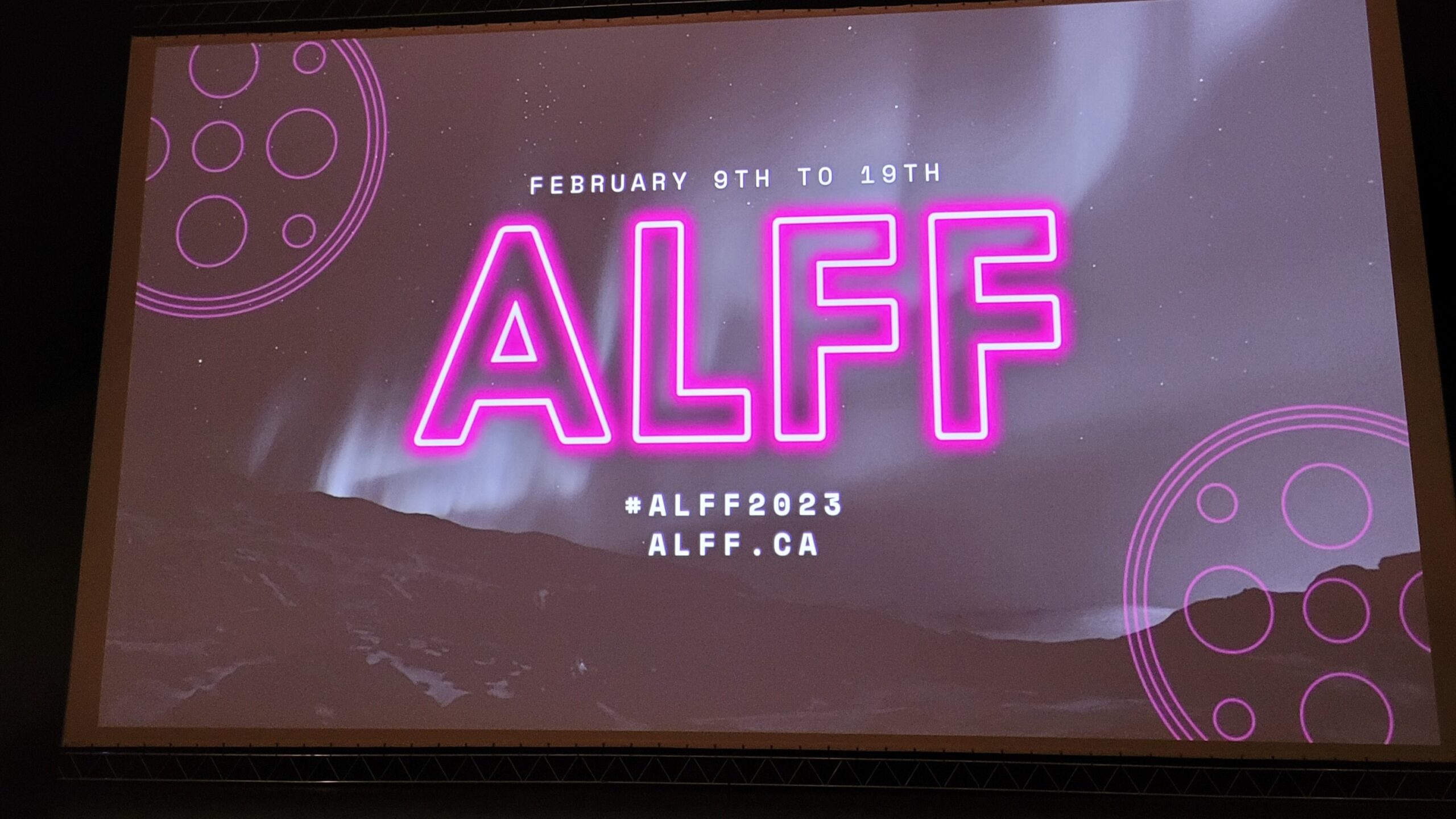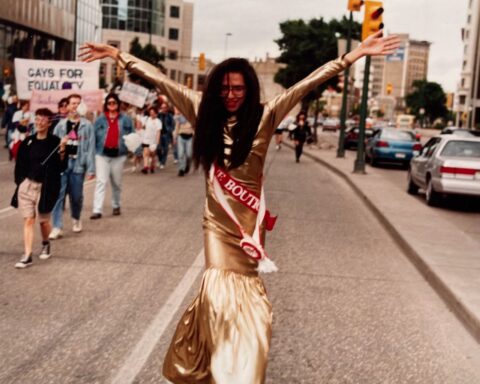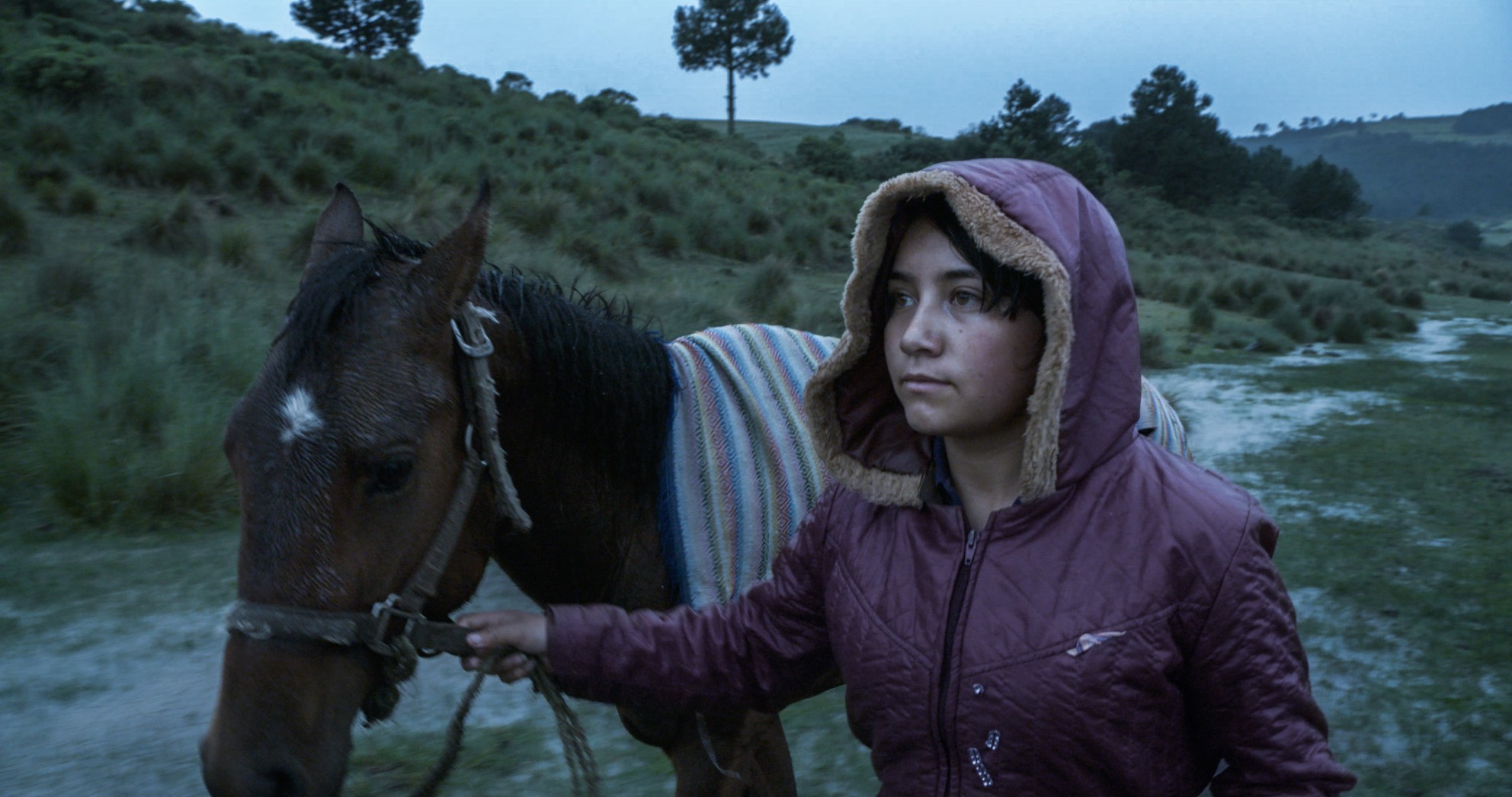The Available Light Film Festival (ALFF) has an infectious community spirit. The Yukon Film Society’s festival, which returned to a 10-day run with 101 movies screening theatrically and online, offers just the ticket for audiences eager to see movies with like-minded cinephiles without the noise that larger events entail. ALFF is laid-back fun with a range of programming that will challenge viewers without breaking their spirits. Buoyed by the crisp cool air of the Yukon and the refreshingly friendly atmosphere of Whitehorse, ALFF is an easygoing, accessible, and ego-free film festival by any standard.
2023’s Available Light Film Festival was also well-timed with the return of the Yukon’s Rendezvous—a celebration of the returning daylight—and the Yukon Quest dogsled race on the first Saturday of the festival. The collision of events added an air of festivities to Whitehorse’s downtown core. There were as many people out and about watching the dogs as there were watching movies on the big screen, which let a visiting guest like myself enjoy the best of both worlds in a whirlwind experience that included a few moose and lots of movies.
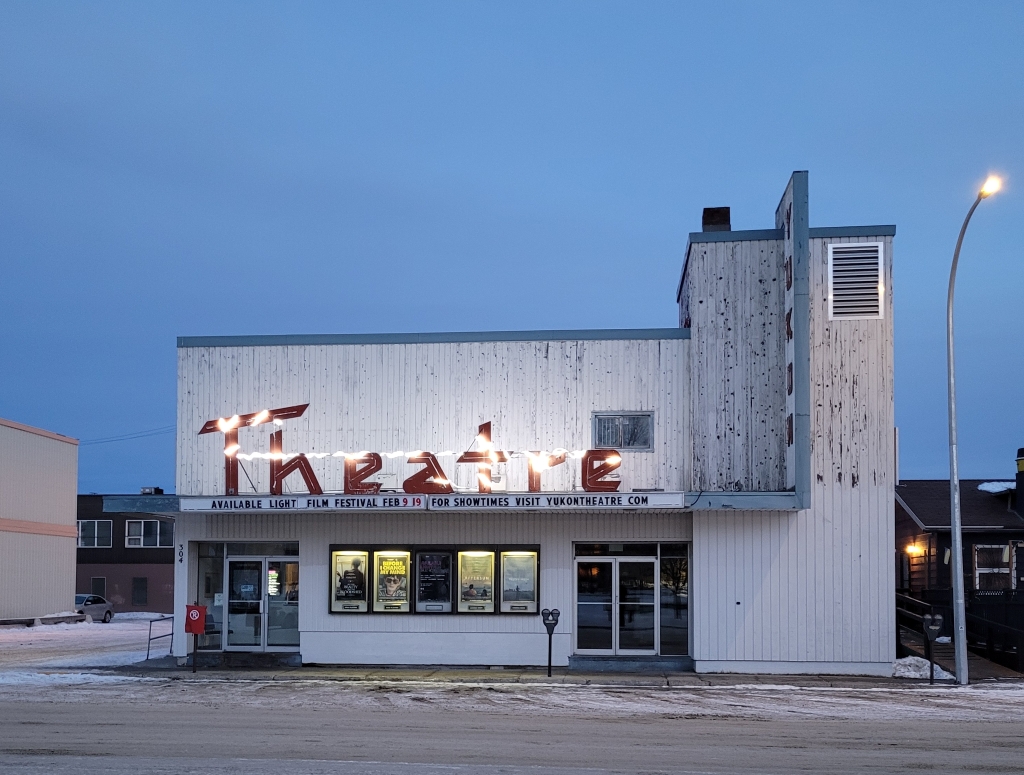
A Taste of Northern Living
This year’s festival kicked off on February 9 with the opening night screening of Eternal Spring. ALFF returned with a buzz of excitement as the full house at the Yukon Arts Centre greeted Canada’s Oscar bid with director Jason Loftus and executive producer Masha Loftus in attendance. The screening was followed by a Q&A moderated by The Globe and Mail’s Johanna Schneller, which elicited passionate feedback from the audience.
Other highlights on the documentary front demonstrated how the Available Light Film Festival really knows its audience. The programming offered a fine slice of northern living, but with stories of universal resonance. The films also featured some rambunctious, colourful characters who, without being patronizing, reflected the outgoing personality of the ALFF crowd. The North attracts a certain kind of character and the films of ALFF shared that mentality. A highlight among the programming was the American documentary Pleistocene Park, which brought a portrait of an eccentric Russian geophysicist. His efforts to reverse climate change felt especially relevant amid the festival’s unseasonably mild February that had many locals commenting about how the Yukon is a bellwether for global warming.
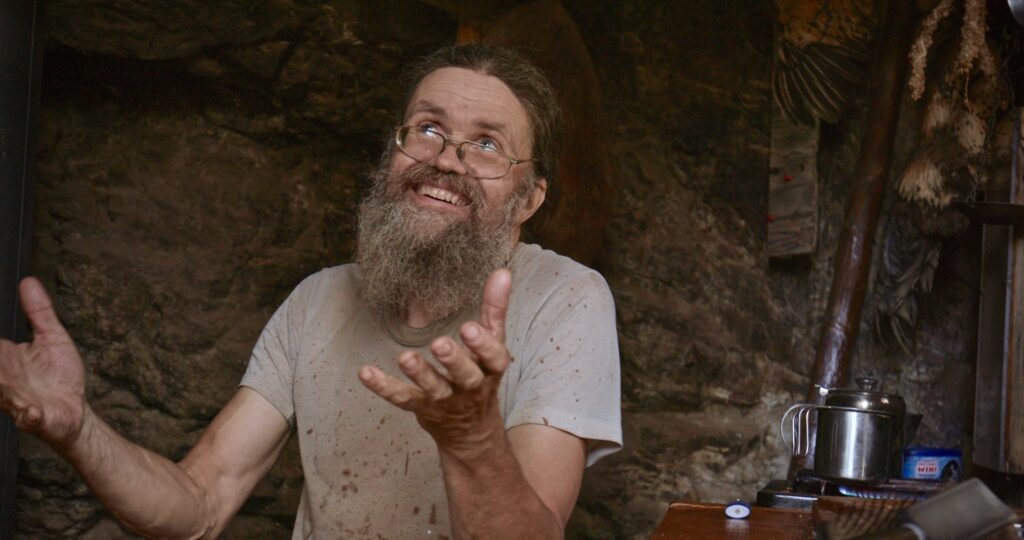
Likewise, a highlight among the local programming was a tale of climate change viewed through the lens of a delightfully eccentric individual. ALFF hosted a jam-packed world premiere for The Ballad of Caveman Bill, directed by David Curtis (Sovereign Soil), which I had the pleasure of moderating. The 50-minute doc offered a window into the experience of Bill Donaldson, a truly off-grid Klondiker who’s been living in a cave outside Dawson City for over 20 years.
The film found a great central character and Curtis knew it, and Bill knew it too. The caveman brought a larger-than-life personality with comfortable screen presence. (Any suspicions that being a cave dweller means being a hermit were shattered within the opening minutes.) Through Bill’s observations and strong connection to the land, though, the doc witnessed the growing evidence for climate change. Bill noted an influx of water trickling down his cave walls, while the freezing and thawing of the river became increasingly unpredictable. Donaldson didn’t provide answers in the doc, nor should he, but through the eyes of one man with a relatively small environmental footprint, the film invited audiences dwelling in the concrete jungle to consider their own impact as well. The film should play just as well outside the local scene thanks to its accessible spirit.
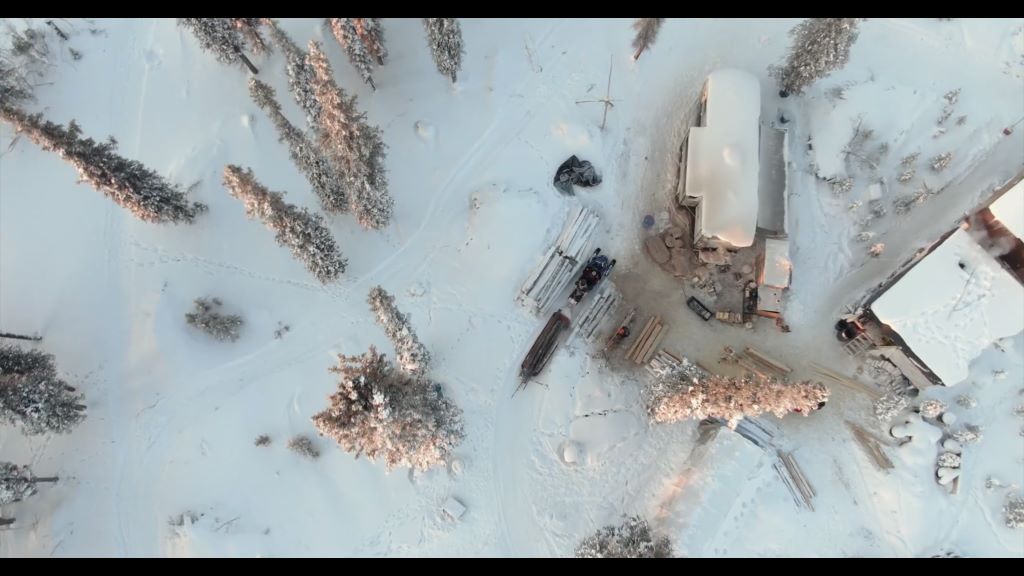
Canadian Docs
Another slice of life off-grid came in the mid-length doc Okpik: Little Village in the Arctic. Directed by Tiffany Ayalik and Kylik Kisoun Taylor, the film followed the latter as he endeavoured to create a sustainable home for his family. Okpik observed as the Inuit/Gwich’in Taylor drew upon traditional practices, and passed the knowledge to his children by actively involving them in the construction of their home. The doc captured the tenacity and survival sense one requires while making the leap away from the conveniences of life on the grid, but much like The Ballad of Caveman Bill, Okpik aspired to a cultural awakening. There’s more than a lifestyle and environmental concerns at stake here as the doc connected the construction of the family home to a larger consideration of a people’s survival.
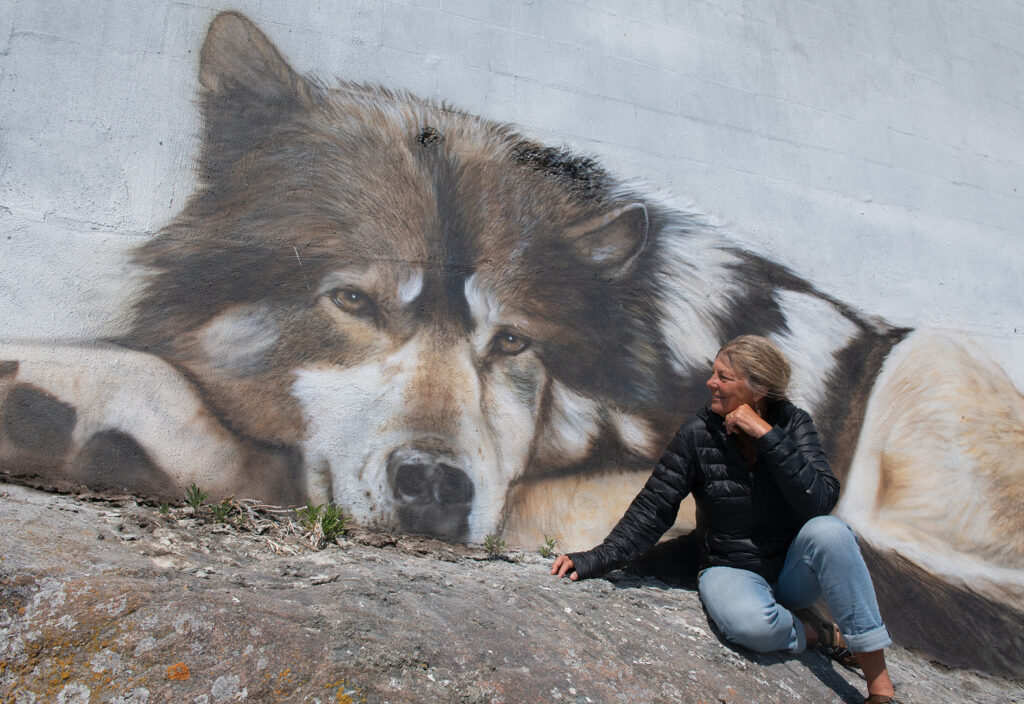
One doc that divided the contingent of Toronto media at the festival, though, was the feature Part of the Pack. The doc directed by Isabelle Groc and Mike McKinlay featured three animal lovers with a bond for wolves. Two subjects had hybrid wolf dogs as pets while the other, a wildlife photographer, captured images of a wild wolf while asserting a sense of ownership on the animal and anthropomorphizing it. Groc and McKinlay did their best to be objective and engage in a little bothsidesism by adding experts’ perspectives to the mix.
The talking heads underscored the danger in domesticating wild animals and projecting human traits onto non-human beings. They also unpacked the legal loopholes that allow wolfdogs to be held as pets. Part of the Pack drew some valid concerns about the similarities and differences between humans and our furry friends, but there was a surprising absence of introspection among two-thirds of its participants. The film admittedly seemed ambivalent to the participants’ selfish drives that left literally every wolf or wolf dog featured in the film dead by premature, often violent causes. The ALFF audience clearly answered the call of the wild, though, and made for an engaged post-screening discussion. (Stay tuned for a review from POV’s Jason Gorber.) Other docs at the festival included Unarchived, Voices Across the Water, Sam Now, Framing Agnes, Revival69, and Okay! (The ASD Band Film).
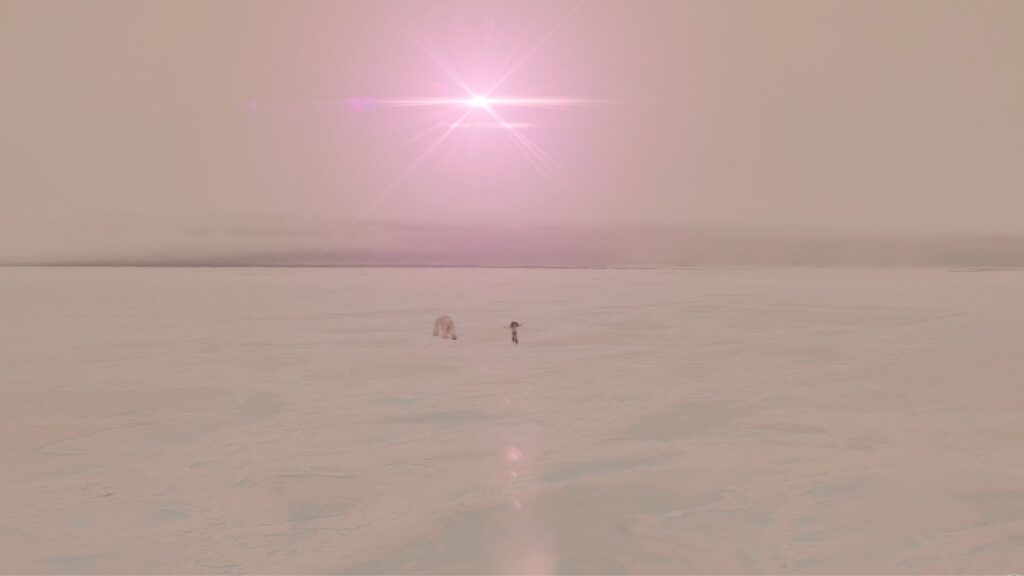
Dramatic Highlights
Having seen much of the documentary programming at other festivals, including Geographies of Solitude, Navalny, All the Beauty and the Bloodshed, Doug and the Slugs and Me, Ever Deadly, and Scrap, familiarity with the non-fiction programming afforded time to take in the dramatic works at ALFF. The main event of the festival was the sold-out hometown premiere of the Yukon shot thriller Polaris, directed by Yellowknife-born filmmaker Kirsten Carthew. Polaris delivered an exciting slice of Northern thrills with its tale of a young girl, Sumi (Viva Lee), wandering the Arctic in a dystopian future. The film had echoes of Mad Max (admittedly on a much smaller scale) with its punk-themed costumes, wild action sequences, and propulsive energy. Polaris featured barely a word of dialogue as Sumi crawled and grunted through the snow, yet it’s hypnotically watchable. The frigid landscape added an appropriate chill to the adventure.
The best film I caught during the festival, meanwhile, was Trevor Anderson’s feature debut Before I Change My Mind. Anderson delivered on the promise of his short films, which include documentary hybrids like The Little Deputy and The Man That Got Away. Before I Change My Mind marked an irreverently funny yet insightful coming of age study about a young person exploring gender identity and questions of selfhood in 1987 Alberta. Anderson created a film that’s refreshingly free of labels as he invited young actor Vaughan Murrae to explore an introspective, soul-searching character against a flamboyantly fabulous backdrop of 1980s’ excess. The film featured a laugh-a-minute musical piece with an MTV riff on Jesus Chris Superstar in the show-within-a-show community theatre production of Mary Magdalene: Video Star. That centrepiece alone showed Anderson in his element and ensured that his a wackily singular voice that’s here to stay.

Industry at Available Light Film Festival
New voices, finally, were the focus of the Available Light Film Festival Pitch Event. Held in the Old Firehall as one of the main draws of the industry programming, the Pitch Event invited six filmmaking teams to sell their projects. Each filmmaker or duo had five minutes to introduce their projects to a panel of judges that included Sarah Spring of the Documentary Organization of Canada, Brenda Lieberman of the Calgary International Film Festival, Mike Gravitis of Northwestel Community TV, and Nic Meloney of CBC Unscripted and Indigenous.
The pitches offered a pair of documentaries that highlighted the range of creative juices flowing during the event. Georgette Asakin’s deeply personal Keeper of the Wind Woman proposed an autobiographical documentary about the filmmaker and her non-verbal daughter. The film pitched panels on a mixed form approach that aimed to combined verité, animation, songs, on screen text, and archival elements to paint a mosaic of love and resilience. Stylistically, it might need a tighter edit to refine the form, but the heart and story made for a good sale.
Meanwhile, my vote for the best pitch of the event easily went to Sam Fleming’s The Fastest Racer. The Whitehorse native pitched a zany story of a comedic documentary about a group of young people in Dawson City who endeavour to create a drag race on the frozen river. The story drew upon the creativity of welders who forge eccentric studded cars in the dead of winter, while Fleming emphasized how the attempt to create the festival could provide a humorous look at youthful malaise up north. While the panel had concerns about the uncertainty of the festival’s outcome for the project, the pitch played very well to invite a great ending whether the festival succeeds or flops. I look forward to seeing The Fastest Racer at festivals come.
The winning pitch, finally, was Robert Joe’s very promising “bannock western” Fistful of Vengeance. Delivered with a strong dramatic weight and an eye for detail that let attendees visualize the film’s opening frames, Joe described a gritty neo-western that riffed on Sergio Leone and the man with no name to tackle themes of generational trauma and addiction. The project was a worthy winner and netted a cash prize of $7,500 from Northwestel and the Yukon Film Society, along with $5000 of in-kind equipment rentals.
Overall, the pitch session highlighted both the community spirit that defined the Available Light Film Festival experience, but also the festival’s effort to nurture a local film culture and foster talents. Expect them to fuel future festivals with decidedly northern flavour.




